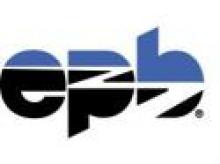Fast, affordable Internet access for all.
Christopher Mitchell
Content tagged with "Christopher Mitchell"
Op-Ed: Baltimore Makes Smart Move with Fiber Investment
NATOA Keynote Panel Discusses Role of Local Governments in Improving Internet Access
In September, I joined the keynote lunch panel at the annual NATOA Conference to discuss what local governments can do to improve Internet access. Joanne Hovis moderated a discussion between Rondella Hawkins of City of Austin, Milo Medin of Google, and myself.
I have embedded the video below so it starts with the panel discussion. However, if you go back to the beginning, you will also be able to watch the annual award presentations, including one to Longmont in Colorado, as well as Milo Medin's 10 minute presentation prior to this panel discussion.
We discuss many important issues, particularly the various actions local governments can take to either build their own networks or to make the community more tempting to others who might build a network.
WUNC Radio Show Explores Muni Network Restrictions in North Carolina
WUNC, a public radio station out of Chapel Hill in North Carolina, covered community owned networks and broadband availability on its recent "State of Things" midday program. I was a guest along with a local resident and a public relations executive from Time Warner Cable to discuss North Carolina's broadband compared to other states and its law that effectively bans local governments from building networks.
The discussion is good, though I certaily could have done a better job. Ultimately I thought the host did a good job of bringing in each guest to make their points, though Time Warner Cable was totally unprepared to talk about how North Carolina can expand access. Instead, they talked about the cable giant's requirements to invest in networks in rural areas.
We are going to follow up on these points but for now wanted to make sure you have a chance to listen to the show. Our coverage of the bill discussed in the radio show is available here.
Chattanooga Cements Status as Best Network in the Nation
Video streaming by Ustream The Washington Post covered the story, including several quotes from me.
DePriest tells me that EPB's fiber network is "a great profit center." In the four years the service has been active, the utility company has increased its mid-tier speeds three times — from 15 Mbps to 30 Mbps, from 30 Mbps to 50 Mbps and now from 50 Mbps to 100 Mbps. About 2,500 elite users will enjoy 1-gig speeds by the beginning of October.Phil Dampier has more coverage at StoptheCap.com, including an analysis of AT&T and Comcast competition.
AT&T charges $65 a month for 24/3Mbps service — its fastest — with a 250GB monthly usage cap, currently not enforced. For $5 more, EPB customers get 1,000/1,000Mbps with no usage limits or overlimit fees.A recent article in the Chattanoogan noted that Chattanooga had surpassed 50,000 subscribers and was on path to surpass Comcast in subscriber base locally.
Mr. DePriest said Comcast had some 122,000 customers on the EPB grid when EPB launched its rival program. He said Comcast is down to around 75,000 and will likely drop to around 60,000 next year.
Responding to More "Crazy Talk" - Community Broadband Bits Podcast #55

Chris Mitchell Talks About Work at ILSR in Latest Podcast
Our listening audience hears Chris Mitchell interview people every week for the Broadband Bits Podcast. Now it is time for the interviewer to become the interviewee.
Chris took a few minutes to participate in the June 2013 episode of the Whatcha Workin' On Podcast from the Institute for Local Self-Reliance. He told us a little about how the Telecommunications as Commons Initiative got started and what we are working on now. This is a nice opportunity to spend ten minutes looking at the inner workings of ILSR's broadband efforts.
You can listen to Chris and subscribe to the the podcast via iTunes. Each month we talk with a different member of the team to find out what is going on at ILSR.
Wired Highlights Local, Public Option for Internet Networks
Klint Finley from Wired.com joined a Media Consortium press call that our own Christopher Mitchell participated in regarding community owned networks, Google Fiber, and concerns about the future of Internet access. He wrote about the event and the promise of municipal networks.
Finley referred readers to us:
But there’s no guarantee that Google Fiber will come to the rest of the United States, and many communities may want to start building an alternative right away. Mitchell said the first step towards building a municipal broadband service in your area is to get educated about what other communities have done. That’s the purpose of the site muninetworks.org, which compiles information about municipal broadband initiatives across the country. The goal is to create a comprehensive resource for community organizers. Users can explore the projects in different states through the Community Network map.
We continue to find more local governments moving forward with their own investments to improve local access, suggesting that many understand the folly of hoping some distant corporation will build the network they need to be successful in the digital economy.
Christopher Mitchell at Freedom to Connect 2013
My presentation from Freedom to Connect on why we should support Community Owned Internet networks. Unfortunately, the video starts about 1 minute into the presentation. Please leave feedback below.
Democracy Now! Segment on Community Owned Networks
Last week, Catharine Rice and I were guests on a Democracy Now! segment filmed at the Freedom to Connect conference. We discussed what community broadband is, how it has benefited communities, and how a few big cable and telephone companies are trying to stop it.





